环时:渲染中国高超音速武器 西媒和美国军方“别有用心”
来自 / 联合早报
11/24/2021
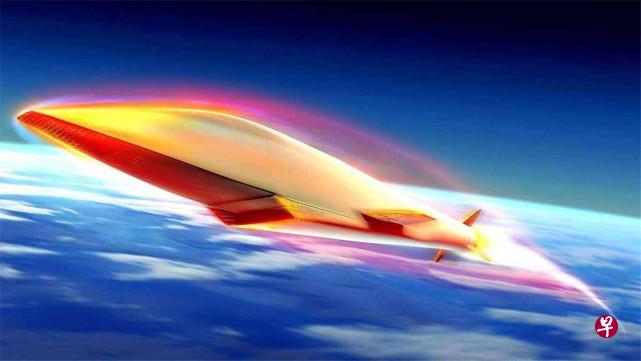
《环球时报》引述航天专家黄志澄说,美国曾经在高超音速武器的研发上一直走在世界前列,后来因为产生了战略上的误判,使得多个高超音速武器研发项目和计划在中断和重启中徘徊。如今,美国军方为了争取更多军费,就不断地渲染俄罗斯和中国的高超音速武器的威慑力。
针对英国《金融时报》前天报道中国高超音速武器能够以五倍音速的速度发射导弹,一些中国媒体质疑这一报道的真实性,并指西方国家不断渲染中国高超音速武器的威胁,其实是为自身研发相关武器“要钱”。
据《金融时报》报道,中国今年7月进行的高超音速武器试验,包含了一项技术进步,使该武器能够在以至少五倍音速的速度接近目标时发射导弹——此前没有任何国家展示过这种能力。
报道引述知情人士称,这一技术进步令五角大楼的科学家猝不及防:该技术让一架高超音速滑翔飞行器——一种可携带核弹头的机动航天器——在南中国海上空大气层中飞行的过程中发射了另一枚导弹。
报道说,美国国防部高级研究计划局(DARPA)的专家至今仍不清楚,中国是如何违反物理规律,从高超音速飞行的飞行器上发射对抗性武器的。有专家认为,这款导弹可能是用于摧毁导弹防御系统,以防止这些防御系统在战时击落高超音速武器。
中国外交部发言人赵立坚前天回应相关问题时重申,相关试验是一次例行的航天器试验,用于验证航天器可重复使用技术。航天器返回前分离的是航天器配套装置,在陨落大气层的过程中烧毁解体。
Nov 22, 2021
CHINA’S round-the-world hypersonic nuclear weapon fired a second missile while travelling five times faster than the speed of sound, reports claim.
No country had previously been able to demonstrate this advanced engineering feat and the test is said to have caught Pentagon scientists off guard.
Last month China stunned the world when it emerged it launched a hypersonic missile right around the globe.
Now it has been revealed the weapon is far more advanced than originally thought.
The hypersonic glide vehicle, a manoeuvrable spacecraft which can carry a nuclear warhead, fired a separate missile during its flight in the atmosphere over the South China Sea on July 27, according to a Financial Times report.
Experts at the Pentagon’s advanced research agency Darpa are said to be unsure how China achieved the feat, as scientists say it “tests the constraints of physics”.
Military experts are said to have been poring over the data to discover how it was achieved.
They are also said to be discussing what the projectile might be for.
It was fired by the hypersonic vehicle but seems to have had no obvious target, before it plunged into the water.
Some Pentagon experts believe the projectile was an air-to-air missile while others think it was a countermeasure to destroy missile defense systems so that they cannot shoot down the hypersonic weapon.
另据美国有线电视新闻网(CNN)报道,美国参谋长联席会议副主席海滕上将此前透露,中国军队正以惊人速度发展实力。中国在过去五年里进行了数百次高超音速武器测试,而美国仅进行了九次这类试验。
“西方媒体写科幻小说”
人民日报社下属的《环球时报》前天发文称,西方媒体硬生生把中国高超音速飞行器试验写成了“科幻小说”。
该报引述航天专家黄志澄说,美国摆出一个弱者的姿态不断去渲染中国高超音速武器的威胁,并不是真的示弱,而是别有用心。美国曾经在高超音速武器的研发上一直走在世界前列,后来因为产生了战略上的误判,使得多个高超音速武器研发项目和计划在中断和重启中徘徊,所以相对来讲在高超音速武器方面发展比较缓慢。
“如今,美国军方为了争取更多的军费入到高超音速武器的研发中,就不断地渲染俄罗斯和中国的高超音速武器的威慑力。”
黄志澄介绍,目前世界上的高超声速武器主要分为三大类,一类是由导弹发射的助推滑翔高超音速飞行器,这一类高超音速飞行器的重量一般都不是很大,发射导弹的可能性较小;第二类则是使用冲压发动机或者是超燃冲压发动机的巡航导弹,其本身就是一枚导弹;第三类是能够进行高超音速飞行的军用战机。这一类军用战机通常被认为具备发射空空导弹的能力。
他说,放眼全球,世界各大军事大国高超音速军用战机项目的研制还处于概念研究和初步试验阶段,没有公开证据显示有任何一款处于试验阶段的高超音速军用战机已经具备攻击能力。
中国媒体《观察者网》也认为,《金融时报》的报道“有点太离谱了”。
该网军事评论员指出,中国尚未有可回收高超音速滑翔体飞行器,即便有,也无法解决可发射载荷的隔热和制导问题。人类现有的能在大气层内飞行的高超音速滑翔体重量远小于任何一款歼击机,无法携带更大的载荷,将这样一款滑翔体发射到轨道上再返回大气层,然后再让它发射某种导弹,打击效能很低,是不符合军事常识的。
五角大楼:美国成功试射雷神高超音速武器
文 / 陈慧璋
9/27/2021
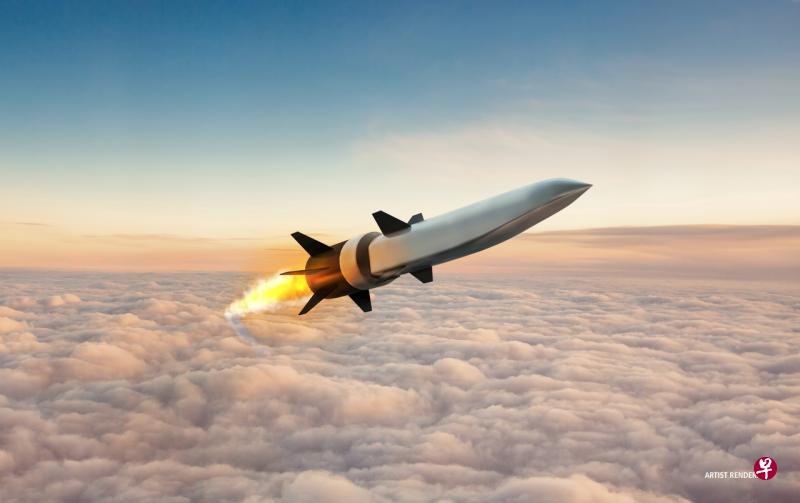
(早报讯)美国国防部周一(27日)宣布,美国成功试射速度超过音速五倍的一种吸气式高超音速武器,这是自2013年以来美国首次成功试射此类武器。
路透社报道,美国国防高级研究计划局(DARPA)在一份声明中表示,高超音速吸气武器概念(HAWC)的自由飞行试验于上周进行。
声明说,高超音速武器在高层大气中以超过音速五倍的速度飞行,每小时飞行约6200公里。
DARPA说:“由雷神技术公司(Raytheon Technologies)制造的这枚导弹,在其诺斯罗普格鲁曼超燃冲压发动机(超音速燃烧冲压喷气发动机)启动的前几秒钟就已经脱离其搭载的飞机。”
雷神技术公司导弹与防御部门总裁克雷默(Wes Kremer)说:“国防部已将高超音速武器和反高超音速能力确定为我们国家安全的最高技术优先事项。
他说:“美国和我们的盟友必须有能力阻遏与击败对这类武器的使用。”
在美国进行此次试射之际,美国与其竞争对手正加快步伐研发高超音速武器。俄罗斯今年7月宣布,俄罗斯军舰在俄西北部白海水域成功试射“锆石”(Zircon))高超音速巡航导弹,并成功命中预定目标。俄罗斯总统普京将之比喻为世界上无与伦比的新一代导弹系统之一。

北美法律公益讲座安排
时间:周二到周五 晚间
5:30-7:00(西部)
8:30-9:30(东部)
第二天西部时间早上9:00重播
周二: 如何准备遗嘱文件(遗嘱workshop)
周三: 数据泄露和个人身份保护&事业机会说明会
周四: 移民和留学生常见法律问题
周五:小企业企业常见法律问题&事业机会说明会
Zoom 6045004698,
密码:进群获取

拜登:美国不寻求“新冷战” 开启不懈外交新时代
文 / 廖慧婷
9/21/2021
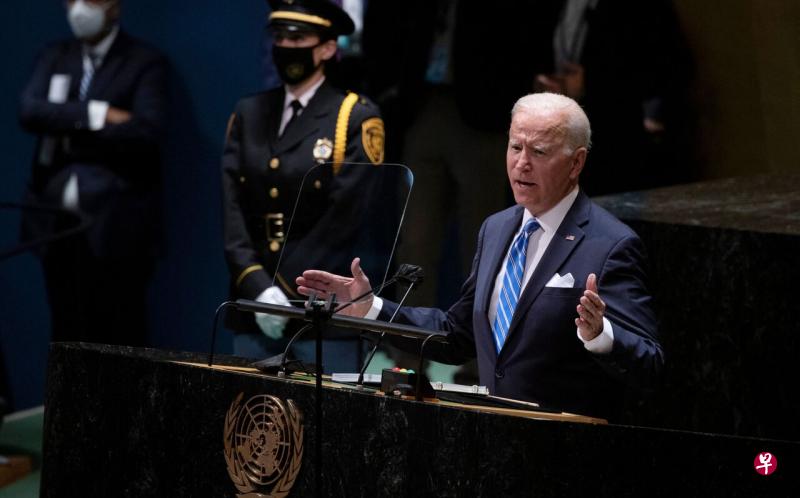
(早报讯)美国总统拜登周二(9月21日)在联合国大会上发表演讲表明,美国无意与主要竞争对手中国陷入“新冷战”。
法新社报道,拜登说:“美国准备好与任何采取和平解决方案以共享挑战的国家合作,即使我们在其他领域存在严重分歧。”
9/21/2021
他也在演讲中,捍卫美国从阿富汗撤军一事。“我们结束了在阿富汗长达20年的冲突,随着我们终结这个无情的战争时代,我们正在开启一个不懈外交的新时代。”
拜登还表示,美国将准备在“必要时”使用武力,但出动军事力量必须是最后的手段。
美众议院拟立法禁中企购买美国农地
来自 / 联合早报
8/01/2021

华盛顿州共和党籍众议员纽豪斯是禁止中企购买美国农业用地条款的发起人。他说,禁止中国人购买农田以及获得农业补助,是“确保美国食品供应链安全和独立的一个步骤”。
(华盛顿讯)根据美国农业部的数据,过去10年,中国企业通过对美国农场和大型农业企业的收购,扩大了他们在美国农业中的存在。美国众议院拨款委员会日前在审议对农业等相关机构的拨款法案草案时,特别纳入了禁止由中国政府部分或全部控制的公司购买美国农业用地的条款。此外,已经拥有美国农业用地的中企将没有资格申请农业补助。该法案仍有待国会参众两院表决通过。
《美国之音》报道,仅在2013年,中国双汇集团收购美国猪肉加工巨头史密斯菲尔德(Smithfield Foods)的并购案中,中国企业就购得14.6万英亩(约6万公顷)的美国耕地。到2020年初,中国业主在美国控制的农业用地约19.2万英亩,价值18.58亿美元(约25.3亿新元)。这些土地可用于耕作、放牧和林业。
尽管中国拥有的美国农业用地远低于其他国家,在美国全部8.97亿英亩农业用地中所占比率也微不足道,但中国对海外农业领域的投资增速迅猛,引起了美国国会议员的警惕。美国农业部2018年一份调查报告显示,自2009年以来,中国在海外的农业投资增长了10倍以上。
华盛顿州共和党籍众议员纽豪斯是禁止中企购买美国农业用地条款的发起人。他说,禁止中国人购买农田以及获得农业补助,是“确保美国食品供应链安全和独立的一个步骤”。
艾奥瓦州共和党籍参议员格拉斯利表示,农业和粮食生产涉及国家安全,“我们必须确保我们没有大量农田受外国利益集团控制”。
目前美国只有六个州立法禁止外国人拥有耕地。这六个州包括艾奥瓦、夏威夷、明尼苏达、密西西比、北达科他、俄克拉荷马。

长期呼吁禁止外国人购买美国耕地的农户利益倡导团体“家庭农场行动”(Family Farm Action)总裁、前密苏里州副州长马克斯韦尔说,外国人或外国实体往往以高于市场价值的价格购买农场,从而推高了土地价格,使得下一代美国农民难以购得土地。
不过,美国农业部经济学家盖尔指出,考虑到中国企业拥有的美国农业用地面积不大,而且主要集中在史密斯菲尔德和2017年中国化工集团收购农业科技企业先正达(Syngenta)这两笔交易上,因此他不认为中国目前在美国的农业存在构成立即的国家安全威胁。
他说:“大多数中国投资集中在收购农田或资源非常易得和便宜的地方,而在美国收购土地往往更昂贵和更复杂,所以大多数中国人的投资集中在美国以外的其他国家。”
美贸易代表办公室首席中国顾问辞职
7/31/2021
美国贸易代表办公室的首席中国顾问伍人英(Mark Wu)表示,由于家庭原因已经辞职。
《华尔街日报》报道,伍人英在接受采访时说,他已经在7月中旬离开了美国贸易代表办公室,将于8月回到哈佛大学法学院,在那里他将专注研究知识产权问题和中国贸易政策。
伍人英表示,“我们的计划一直是帮助贸易代表戴琪适应她的角色”,“团队已经就位,节奏也已经形成”。
伍人英说,家庭问题是他离开的另一个原因。他说,这与美国贸易代表办公室继续对中国政策进行审查无关。
据报道,美国贸易代表办公室正在对其对华政策进行全面审查,预计将于今年秋季完成。该政策的细节鲜少公开,这导致大型投资者和对华的出口商日益失望。
中国首次以《反外国制裁法》制裁美国人员与实体
文 / 杨丹旭
7/23/2021
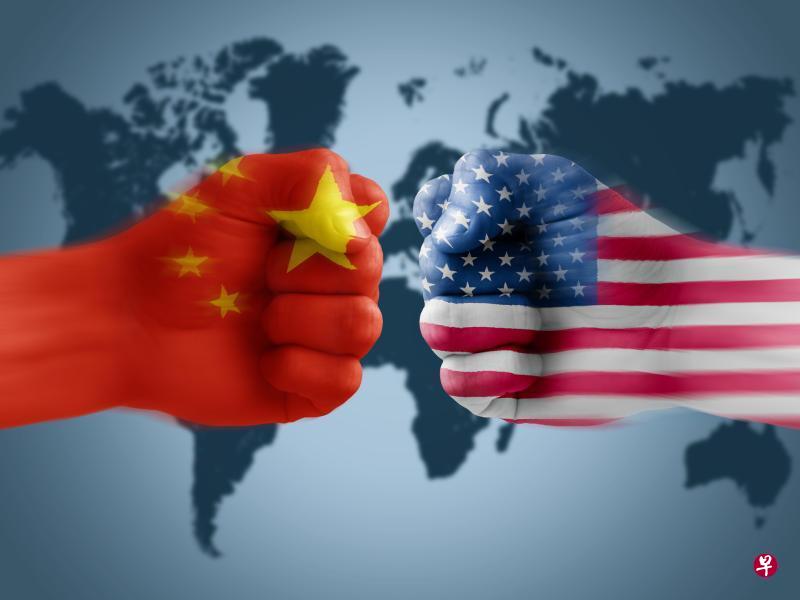
美国副国务卿谢尔曼访华前夕,中国首次援引《反外国制裁法》,对美国前商务部长罗斯等七个美国人员与实体实施制裁。
中国外交部23日晚在其官网以发言人回答记者问形式做出该宣布。
除了罗斯,其他被制裁的人员和实体包括:美国国会美中经济与安全评估委员会主席卡罗琳·巴塞洛缪;国会—行政部门中国委员会前办公室主任乔纳森·斯迪沃斯;美国国际事务民主协会金度允、美国国际共和研究所在港授权代表亚当·金、人权观察中国部主任索菲·理查森,以及香港民主委员会。
这是中国首次依据《反外国制裁法》,对美国采取反制措施。中国全国人大常委会上月10日通过《反外国制裁法》,为反制外国对中国的单边制裁提供法律依据。
根据该法律,反制措施包括不予签发签证、不准入境、注销签证或驱逐出境等;查封、扣押、冻结在中国境内的动产、不动产和其他各类财产;禁止或限制中国境内组织、个人与其进行有关交易、合作等。
中国外交部发言人称:“对美国炮制所谓‘香港商业警告’,无端抹黑香港营商环境,非法制裁多名中国中央政府驻港机构官员,有关行径严重违反国际法和国际关系基本准则,严重干涉中国内政,中方对此坚决反对,予以强烈谴责。”
美国财政部本月16日宣布,对香港中联办七名副主任实施制裁,他们在美资产将被冻结,也被禁与美国实体交易。美国国务院、商务部和国土安全部同日也向企业发出公告,指随着北京加强对港控制,在港美企将面对信誉、监管、财务乃至法律风险。
中国做出的制裁宣布,也被视为给谢尔曼的下马威。按照计划,谢尔曼将于25日至26日到访天津。她将与中国外交部主管中美关系的副部长谢锋会谈,之后会见中国国务委员兼外长王毅。(联合早报北京特派员杨丹旭报道)
Biden’s China Doctrine?
By Raihan Ronodipuro
7/19/2021
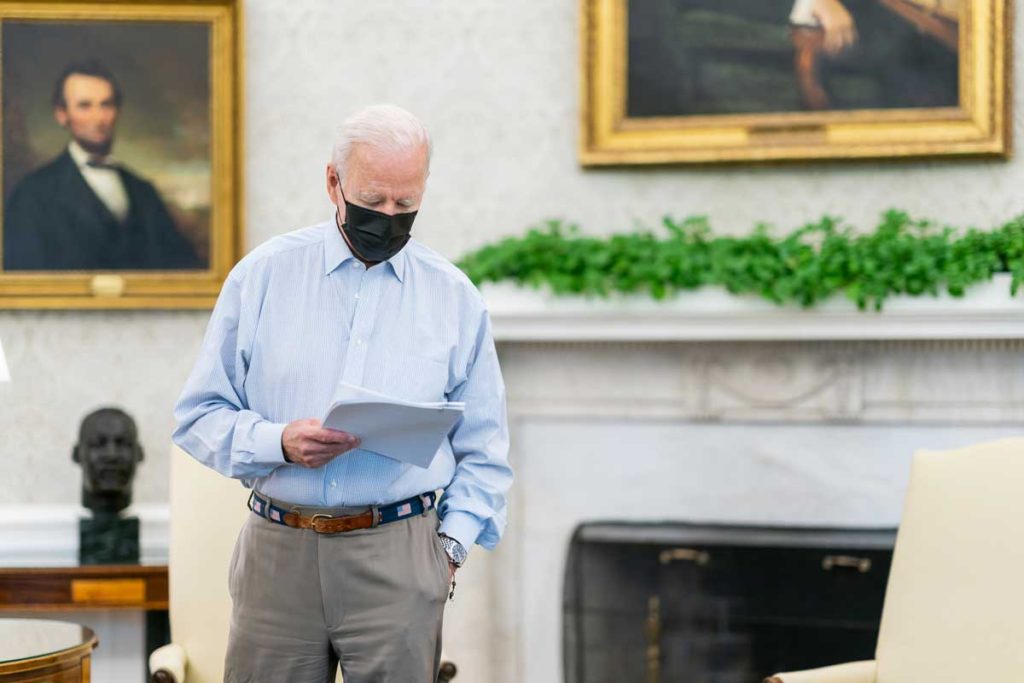
The current issue of “The Economist,” published recently, features a cover story on Biden’s China Doctrine. According to the report, “Bidenism” has converted the rhetoric of the “Trumpism” era into a policy prescription of Sino-US clashes (particularly institutional confrontation), with only one winner.
Biden and his team think that China is not interested in coexisting with the US, and they anticipate an early domination. Because of this, the goal of US policy toward China is to undermine China’s objectives. The US can collaborate with China on topics of mutual interest, such as climate change, but on problems such as the economics, technology, diplomacy, military, and values, the US focuses opposing China’s aspirations by strengthening itself and expanding cooperation with allies.
The report calls Biden’s China Doctrine into doubt. Internally, although Biden wishes to utilize China to unify the two parties and push his own agenda, the Republican Party is clearly not foolish enough to readily embrace Biden’s proposals as long as Biden includes a “China” chapter on the bill’s cover.
Diplomatically, Biden not only misjudged the United States’ present global power, but also miscalculated the losses that American allies would suffer if they faced China. In reality, instead of promoting cohabitation, the US administration has turned the relationship between major powers into a “zero sum” game.
The article provides an illustration of how China is on the verge of dominating the economic sphere. Aside from becoming the world’s largest economy, the number of nations with China as their primary trade partner has nearly doubled that of countries with the United States as their primary trading partner.
When it comes to the Sino-US competition, Germany’s perspective is clearly influenced by economic reasons. Southeast Asian countries turn to the United States only for security, and they look to China for economic growth. As a result, if forced to choose between China and the United States, many countries will go with China.
Biden has continued to utilize China’s difficulties to push the domestic agenda, despite the US’s capacity to re-defend norms. His policy proposals include industrial strategies, government involvement, planning, and control. According to rumors, the Biden administration may employ further subsidies and oversight to ensure that jobs and manufacturing remain in the United States.
So, in effect, Biden’s policy proposals have followed a moderate kind of trade protectionism. If the Biden administration withdraws its friends from China, if the goal is to allow the US to leave more employment possibilities, the allies who have not benefitted will understandably wonder, “Why on earth should I join the US in doing this?”
The cover story of The Economist may be considered to have struck the high points of Bi’s China policy since taking office. The Biden administration appears to have clear stances and propositions on China policy, but both its logic and the actions of relevant officials send a strong signal that it serves only the internal affairs of the United States – as if the United States is unconcerned about the affairs of other countries.
Benefits and emotions For example, Southeast Asia was originally given significant weight in the United States’ Asia-Pacific policy, but when the ASEAN foreign ministers met at the end of May, Anthony Blinken, who had been invited, not only did not attend, but instead decided to travel from Ireland to Israel. Connected to join, however because to technical difficulties, other individuals waited on the scene for over an hour before connecting successfully. Despite the fact that it is only a technical problem, the impression provided to ASEAN nations is that the Biden administration does not value Southeast Asia.
A few weeks later, the same group of ASEAN foreign ministers traveled to Chongqing for the meeting. China not only laid out the red carpet for them, but Foreign Minister Wang Yi also had constructive face-to-face talks with them. When ASEAN nations compare their sentiments to those of China and the United States, they realize how frigid they are.
Aside from technical problems, Blinken opted to visit the Middle East rather than Southeast Asia, which rendered the Biden administration’s “return to Asia-Pacific” rhetoric unconvincing to many countries. The US Department of Defense relocated its lone aircraft carrier in the Western Pacific to facilitate military departure from Afghanistan, sending an incredible signal to US allies.
Similar events took place several times in the six months after Biden entered the stage. For example, when the Indonesian foreign minister visited New York last month for a UN meeting, he requested a foreign minister-level meeting with Blinken, but Blinken wasn’t sure if he couldn’t spare the time or didn’t want to see each other at all.
Other nations’ bewilderment, as well as the United States’ skepticism of the Biden administration, has inevitably been felt. Biden and his staff are now pushing for a solution. Blinken, for example, stated last Sunday that the Biden administration maintained the Trump administration’s policy of rejecting China’s South China Sea sovereignty claims, and that the US and the Philippines have signed a mutual defense treaty, and that any attacks on the Philippines will result in a response from the US.
Trying to win the approval of the Philippines, Brunei, Indonesia, Malaysia, and Vietnam. However, studying Pompeo will not help the US diplomatic position. If Biden’s China policy proposal continues to follow the thinking and operations of the Trump era, it may face significant domestic and foreign problems.
US must outcompete China for a stable relationship: Daniel Russel
Beijing’s aggression comes from perception that America is declining, former official says
TSUYOSHI NAGASAWA, Nikkei staff writer
7/10/2021
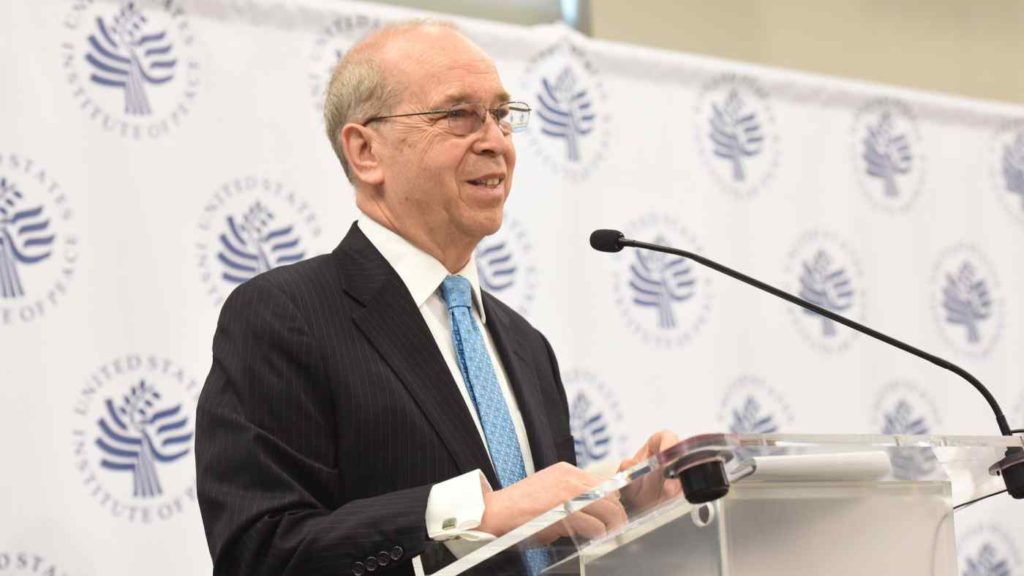
WASHINGTON — The secret visit of U.S. Secretary of State Henry Kissinger to Beijing on July 9-11, 1971, kicked off an American policy of engagement with China. Fifty years later, with China on track to overtake the U.S. economy as early as 2028, bilateral relations are at a crossroad.
In an interview with Nikkei, Daniel Russel, former U.S. assistant secretary of state for East Asia and Pacific affairs during the Obama administration, said the nature of the relationship is changing, and it would be wrong to assume that Washington would return to the “good old days,” supporting China’s growth while making an effort to avoid friction and confrontation.
But Russel, now vice president for international security and diplomacy at the Asia Society Policy Institute, also stressed that aiming for regime change in Beijing is unrealistic and unwise, and would be in line with the “catastrophic” failures of attempted regime changes in the Middle East.
Edited excerpts from the interview follow:
Q: Since Kissinger began an engagement policy with China in the 1970s, the U.S.-China relationship has been relatively stable. The U.S. has invited China into the international system. Looking back, how do you evaluate the pros and cons of this policy?
A: If we took a step back and looked broadly at the historical record, we see that the United States deliberately chose a policy of engaging China and supporting its development, first back in 1972 under President Richard Nixon, where this was part of the strategy for containment of the Soviet Union, but then again in the ’90s, when Bill Clinton was president, after the end of the Cold War, the collapse of the Soviet Union. There was a second policy of engaging China that led up to the entry of China into the WTO.
From the Clinton era on, America’s policy toward China was based on the view that a stable China, a prospering China, would serve the best interests of the United States, in part because a weak China, or an insecure China, would likely pose a lot of risks to U.S. interests and to our allies.
I’ve never heard a persuasive argument that it would have been better to do something different than engagement, at those junctures. The United States made a common-sense decision, to try to engage China and to shape its behavior, to integrate China and to give it a stake in the international system, that the United States had largely designed.
And, while people hoped for political liberalization, I don’t think that political liberalization was the reason that the U.S. government and other governments took this approach, because what was the alternative?
Who is going to argue that an effort to isolate China and to contain China, or to destabilize China would have been a better strategy? It would have been a recipe for disaster.
Today, there is a kind of new conventional wisdom that is based on the view that cooperation with China is impossible, that engagement with China is a failure.
If you look at the historical record, that’s just not defensible, that’s not true.
But that doesn’t mean that we can go back to the “good old days” where we tried to support China’s growth, where we made an effort to avoid friction and confrontation.
There are two reasons for this.
In the past, as long as there was a large disparity, a gap, in military power and economic power between the two countries, the relationship was reasonably stable. But China has become much more economically successful and much more militarily and technologically capable. China is now close to being a peer power to the United States, which it never was.
Secondly, in the Xi Jinping era — which now is about almost nine years — China’s leadership has become more assertive, more ideological, and more brazen, more overt, in challenging global norms and challenging U.S. leadership. We’ve seen bullying behavior intensify by China.
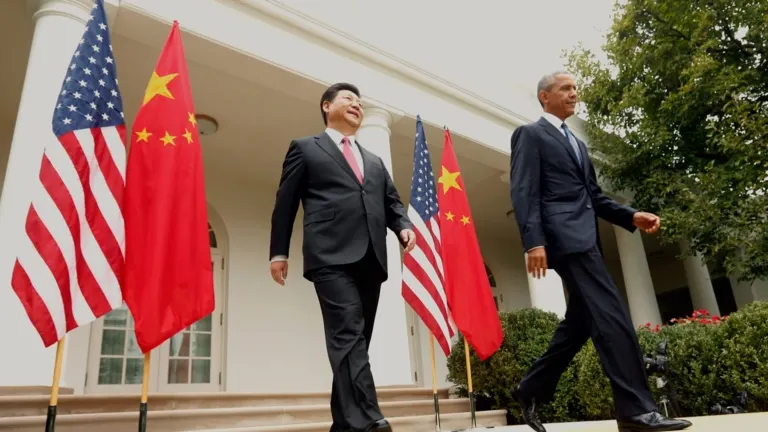
Q: What were negotiations with China like in the years of President Barack Obama?
A: We had two very different experiences with the Chinese. On the South China Sea, Obama had very direct, very blunt, discussions with Chinese President Xi Jinping repeatedly, from 2013 and the Sunnylands meeting on, each time more forcefully warned Xi that China’s island building, its reclamation, its activities, were creating risk, and that the United States had a responsibility to the defense of the Philippines and more broadly had a strong commitment to freedom of navigation, and could not accept efforts by China to claim the so-called nine-dashed line, or to develop outposts in international waters, and that this was damaging the U.S.-China relationship.
Finally, in the meeting in 2015, Xi made an assurance, and he made a public assurance as well, that China would not militarize the outposts that it built.
But, in that case, China did not ultimately honor that commitment, and the problematic behavior continued. And it had a very damaging effect on U.S. relations with China.
The issue of cyber theft, and particularly the Chinese government’s sponsorship of cyber-enabled theft of American intellectual property from companies, that was a different experience, because for years Obama raised this issue with Xi and warned of consequences, and told Xi that, although China was denying it, the United States knew that China was conducting these attacks, and that they couldn’t hide from us.
And finally, the Chinese saw evidence that the United States was preparing to take very severe action in retaliation for this, and the Chinese leadership recognized that they were reaching a dangerous, critical point, and so they sent to Washington the top security official in China, Meng Jianzhu, who came with instructions: don’t come home without an agreement.
And he stayed in Washington for several days. He met with the U.S. government team. And you may remember that the U.S. and China issued a four-point agreement. In that agreement, China essentially acknowledged that this cyber theft had occurred, committed to end it, and made some public commitments that they did implement, they did honor.
For several years after that, the U.S. agencies that were monitoring cyberattacks formed a judgment that China had, in fact, scaled back significantly the attacks that at least the government, the state, was supporting.
Q: Based on those lessons, how should the U.S. approach China?
A: My judgment is that Chinese behavior has become much more troubling and dangerous as Chinese leaders have begun to believe that they are as strong as the United States, that they are getting stronger and the U.S. is getting weaker.
I don’t think that it is wise or feasible to pursue a strategy of weakening China. Instead, it is necessary and wise to pursue a strategy of strengthening the United States and its allies because, as I pointed out before, when the power differential between the United States and China was wider, the relationship was very stable.
As long as the Chinese perception is that the United States is weak, is on the decline, is withdrawing from its traditional role in shaping and often leading international affairs, in rules-setting and so on, and has abandoned the sort of moral high ground that gave the United States so much soft power over the decades, China is incentivized to challenge more directly.
If and when the Chinese leaders see more evidence that the United States is demonstrating resilience, is renewing and reinventing itself, that the overall strength of the democratic communities is growing, not shrinking, the Chinese leaders will be much more open to compromise. They will be much more flexible, much more careful, in their behavior.
Chinese leaders are Leninists and Leninists respect strength and have contempt for weakness.
If the United States, over the course of this year, shows, for example, extraordinary ability to stop the spread of COVID-19, an extraordinary ability to develop vaccines that have 96% to 97% effective rates, demonstrates the ability to manufacture billions of doses and make them available to countries around the world, whereas China, despite its very strict and draconian controls, now continues to battle emerging cases of the delta variant, and the Chinese vaccine, Sinovac, which they have distributed around the world, is now revealed to be far less effective in preventing COVID than advertised, that’s a way in which the United States is already demonstrating its strength.
It is already outcompeting. We’re not hurting China. We’re not blocking China. But we are outperforming China.
Q: You talked about the leadership of Xi Jinping himself. How is he different from former presidents Hu Jintao and Jiang Zemin before him?
A: Jiang Zemin and Hu Jintao were not democrats; they had no interest in sharing power. But they were also pragmatists, and they were continuing the tradition of Deng Xiaoping, the tradition of “hiding and biding,” the tradition of opening and reform.
Xi Jinping represents a more nationalist and a more ideological strain of Leninism. In the Chinese communist system, he is clearly representing those who believe that more control is the right answer, and that political liberalization is a recipe for disaster that China cannot afford.
Q: China hawks in the U.S. have argued that the biggest problem is the Chinese Communist Party and thus the U.S. should seek regime change.
A: Number one, the people who are advocating regime change are the very people that have experimented with regime change in Iraq, in Libya, and other parts of the world. And, in every case, it has been a catastrophic failure. It’s not only that it didn’t succeed; it’s that it created immense problems in the country and immense problems in the United States.
The United States does not have the power to overthrow the Chinese Communist Party, and we know from experience that, even if we were successful, the consequences are unpredictable and immensely dangerous.
We can certainly hope for a change and an improvement. There’s much that we can do to bolster civil society within China, and much we can do to help strengthen institutions other than the Chinese Communist Party, in China.
There is a lot of pressure that can be applied externally on the Chinese leadership to limit their behavior. But the notion of the United States reaching in and changing the government in China is unrealistic and unwise.
Q: Is there a similarity between the current situation and the 1970s, in the sense that the Biden administration is now seeking a stable and predictable relationship with Russia so as to focus more on China and try to drive a wedge between China and Russia?
A: The big difference in the 1970s was that Moscow and Beijing were in an intense rivalry and were virtual enemies. Another difference was that the U.S. and the Soviet Union were in a very significant Cold War, in which we had very little economic or other mutual dependencies and were largely separated into independent blocs, and we were competing around the world for influence, in a very direct way.
Today, Russia is a relatively weak power that is largely focused on making problems, making mischief for the U.S. and for the West.
And the relationship between Moscow and Beijing is very cooperative, very collaborative. And unlike the Soviet Union, China is well integrated into the global system, the multilateral system, and the degree of economic and technological integration between China, the United States, and the rest of the West, is unimaginably large.
So, I think, in those respects, we’re in a very, very different world. And, while it is problematic for the United States when China and Russia cooperate in causing problems for us and our friends, and while there would be some virtue and value in trying to provide incentives for Moscow to moderate its behavior and to refrain from that kind of mischief-making, I don’t think there is any prospect for a kind of fundamental alteration of the triangular relationship, the way that Kissinger and Nixon changed it in 1972.
China beating US by being more like America
Cultivating human capital will be essential if the US rather than China is to be the base of the next industrial revolution
By BRANDON J WEICHERT
4/25/2021
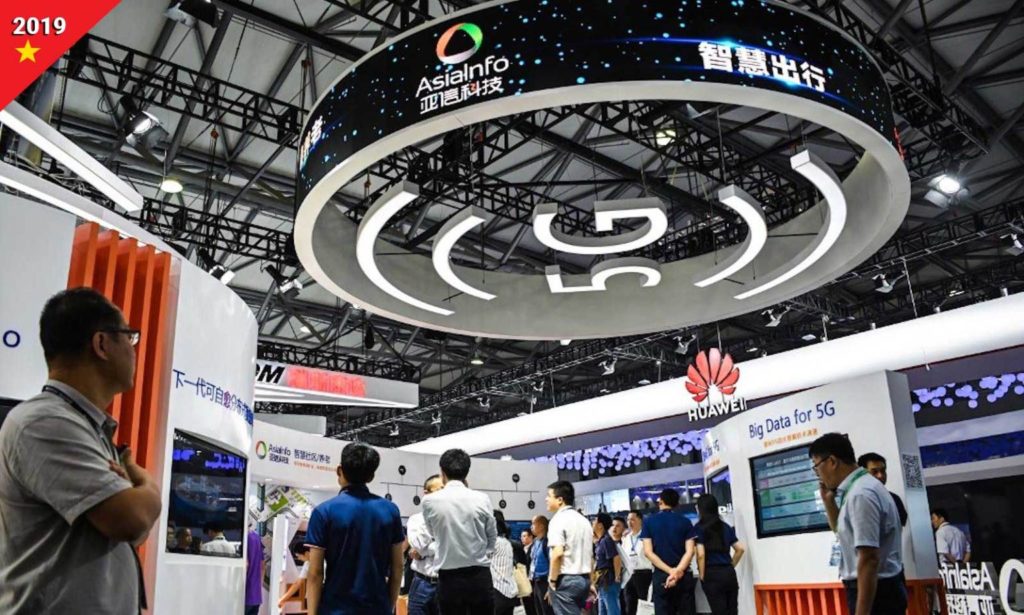
The United States transitioned from an agrarian backwater into an industrialized superstate in a rapid timeframe. One of the most decisive men in America’s industrialization was Samuel Slater.
As a young man, Slater worked in Britain’s advanced textile mills. He chafed under Britain’s rigid class system, believing he was being held back. So he moved to Rhode Island.
Once in America, Slater built the country’s first factory based entirely on that which he had learned from working in England’s textile mills – violating a British law that forbade its citizens from proliferating advanced British textile production to other countries.
Samuel Slater is still revered in the United States as the “Father of the American Factory System.” In Britain, if he is remembered at all, he is known by the epithet of “Slater the Traitor.”
After all, Samuel Slater engaged in what might today be referred to as “industrial espionage.” Without Slater, the United States would likely not have risen to become the industrial challenger to British imperial might that it did in the 19th century. Even if America had evolved to challenge British power without Slater’s help, it is likely the process would have taken longer than it actually did.
Many British leaders at the time likely dismissed Slater’s actions as little more than a nuisance. The Americans had not achieved anything unique. They were merely imitating their far more innovative cousins in Britain.
As the works of Oded Shenkar have proved, however, if given enough time, annoying imitators can become dynamic innovators. The British learned this lesson the hard way. America today appears intent on learning a similar hard truth … this time from China.
By the mid-20th century, the latent industrial power of the United States had been unleashed as the European empires, and eventually the British-led world order, collapsed under their own weight. America had built out its own industrial base and was waiting in the geopolitical wings to replace British power – which, of course, it did.
Few today think of Britain as anything more than a middle power in the US-dominated world order. This came about only because of the careful industrial and manipulative trade practices of American statesmen throughout the 19th and first half of the 20th century employed against British power.
The People’s Republic of China, like the United States of yesteryear with the British Empire, enjoys a strong trading relationship with the dominant power of the day. China has also free-ridden on the security guarantees of the dominant power, the United States.
The Americans are exhausting themselves while China grows stronger. Like the US in the previous century, inevitably, China will displace the dominant power through simple attrition in the non-military realm.
Many Americans reading this might be shocked to learn that China is not just the land of sweatshops and cheap knockoffs – any more than the United States of previous centuries was only the home of chattel slavery and King Cotton. China, like America, is a dynamic nation of economic activity and technological progress.
While the Chinese do imitate their innovative American competitors, China does this not because the country is incapable of innovating on its own. It’s just easier to imitate effective ideas produced by America, lowering China’s research and development costs. Plus, China’s industrial capacity allows the country to produce more goods than America – just as America had done to Britain
Once China quickly acquires advanced technology, capabilities, and capital from the West, Chinese firms then spin off those imitations and begin innovating. This is why China is challenging the West in quantum computing technology, biotech, space technologies, nanotechnology, 5G, artificial intelligence, and an assortment of other advanced technologies that constitute the Fourth Industrial Revolution.
Why reinvent the wheel when you can focus on making cheaper cars and better roads?
Since China opened itself up to the United States in the 1970s, American versions of Samuel Slater have flocked to China, taking with them the innovations, industries, and job offerings that would have gone to Americans had Washington never embraced Beijing.
America must simply make itself more attractive than China is to talent and capital. It must create a regulatory and tax system that is more competitive than China’s. Then Washington must seriously invest in federal R&D programs as well as dynamic infrastructure to support those programs.
As one chief executive of a Fortune 500 company told me in 2018, “If we don’t do business in China, our competitors will.”
Meanwhile, Americans must look at effective education as a national-security imperative. If we are living in a global, knowledge-based economy, then it stands to reason Americans will need greater knowledge to thrive. Therefore, cultivating human capital will be essential if America rather than China is to be the base of the next industrial revolution.
Besides, smart bombs are useless without smart people.
These are all things that the United States understood in centuries past. America bested the British Empire and replaced it as the world hegemon using these strategies. When the Soviet Union challenged America’s dominance, the US replicated the successful strategies it had used against Britain’s empire.
Self-reliance and individual innovativeness coupled with public- and private-sector cooperation catapulted the Americans ahead of their rivals. It’s why Samuel Slater fled to the nascent United States rather than staying in England.
America is losing the great competition for the 21st century because it has suffered historical amnesia. Its leaders, Democrats and Republicans alike, as well as its corporate tycoons and its people must recover the lost memory – before China cements its position as the world’s hegemon.
The greatest tragedy of all is that America has all of the tools it needs to succeed. All it needs to do is be more like it used to be in the past. To do that, competent and inspiring leadership is required. And that may prove to be the most destructive thing for America in the competition to win the 21st century.
Source: https://asiatimes.com/2021/04/china-beating-us-by-being-more-like-america/
Feb 18, 2021
Aug 4, 2020


